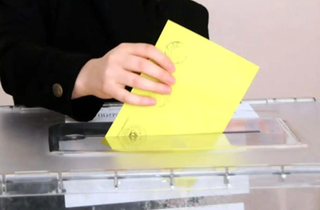The election battle comes after months of tension between Prime Minister Andrej Plenkovic of the HDZ and President Zoran Milanovic, who sought the SDP's candidacy for prime minister but was blocked by the Constitutional Court.
With recent polls indicating a likely victory for the HDZ, the election outcome is expected to determine the country's political direction. While the HDZ promises continuity, the SDP pledges to address corruption scandals that have plagued the HDZ's reputation.
Pre-election polls suggest that neither party will secure a majority, likely leading to coalition-building with smaller parties on both the right and left.
In a poll by Promocija Plus, the HDZ is projected to win 60 seats, down from its current 66, potentially losing its slim majority. The SDP's centre-left Rivers of Justice coalition is anticipated to gain 44 seats, while the rightwing Homeland Movement and green-left Mozemo (We Can) movement are also expected to make gains.
The election's outcome holds significance not only for Croatia but also for Europe amid the ongoing Russia-Ukraine conflict. It will determine Croatia's stance on the crisis, with the HDZ expressing solidarity with Ukraine and the SDP advocating for a potentially more pro-Russian approach.
Since Croatia's independence, the HDZ has dominated the political landscape, overseeing the nation's integration into the EU and the eurozone. However, criticism of corruption and nepotism under Plenkovic's leadership has fueled opposition sentiment.
Milanovic's bid for prime minister despite serving as president has added a personal dimension to the election campaign, with both leaders exchanging barbs and accusations. Despite a court ruling barring Milanovic's candidacy, he remains defiant, intensifying the rivalry between the two politicians.
As Croatia prepares for its first major election of the year, the outcome will set the stage for future political developments, including European Parliament elections in June and a presidential vote in December. (ILKHA)



 Güncel
Güncel
 Güncel
Güncel
 Güncel
Güncel
 Güncel
Güncel
 Dünya
Dünya
 Güncel
Güncel
 Güncel
Güncel
 Güncel
Güncel
 Güncel
Güncel
 Dünya
Dünya





